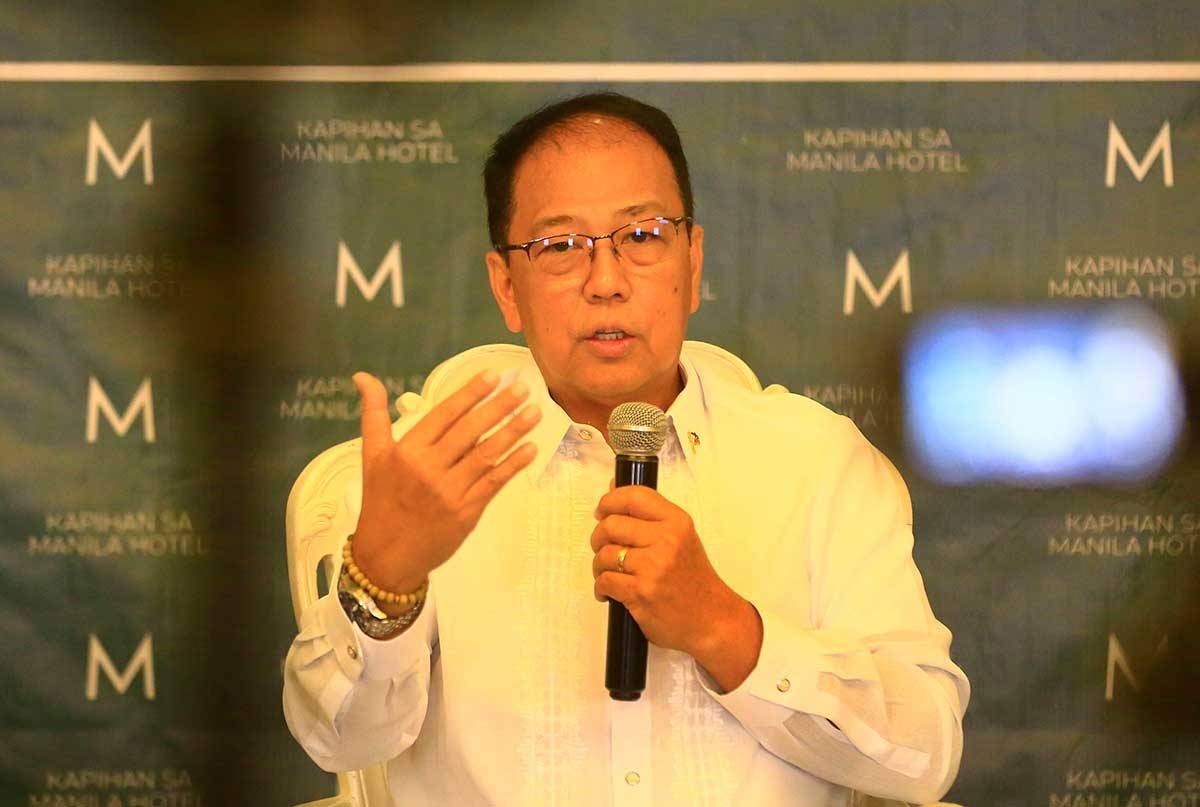Banner year for peace initiatives
PRESIDENTIAL Adviser on Peace, Reconciliation and Unity Carlito Galvez Jr. described 2024 as a banner year for Philippine peace initiatives. Galvez attributed the successful peace-building efforts of the Office of the Presidential Adviser on Peace, Unity and Reconciliation (Opapru) to robust partnerships with stakeholders and the unwavering support of the media. Among the accomplishments in Opapru's year-end report was the celebration of the 10th anniversary of the Comprehensive Agreement on the Bangsamoro. In September, National Peace Consciousness Month was commemorated by celebrating the 29th anniversary of the 1996 Final Peace Agreement between the government and the Moro National Liberation Front (MNLF). The MNLF Transformation Program received a boost with a turnover of P25 million worth of farming equipment to former combatants, aimed at bolstering agricultural productivity and income generation within the group. The Small Arms and Light Weapons Management program posted remarkable progress with the voluntary surrender of loose firearms across Mindanao: 765 in Basilan, 671 in Maguindanao, 512 in Tawi-Tawi, and 39 in Lanao del Norte. The development has enhanced community safety in preparation for the Bangsamoro parliamentary elections in 2025. Meanwhile, P210 million was earmarked to rehabilitate vital infrastructure in Agusan del Sur. In Luzon, the first Peace and Development Center was constructed in Baguio City, marking the 38th anniversary of the Mt. Data Sipat Peace Accord. In the Visayas, Opapru reported over 90 percent completion of its commitments to the Kapatiran group. It added that transformation programs for former rebels and conflict-affected communities were flourishing. Of 51 provincial local government units, 34 crafted and adopted tailored development initiatives. Meanwhile, under the Payapa at Masaganang Pamayanan program, P5 billion was allocated in 2024 for community-level projects. The amount was increased to P5.2 billion for 2025. Opapru's peace-building efforts for 2024 were highlighted by the Philippines' successful hosting of the International Conference on Women, Peace and Security, attended by over 700 delegates. The conference concluded with the adoption of the Pasay Declaration, reaffirming global commitments to the inclusion of women in peace-building around the world. Establishing a Women, Peace and Security Center of Excellence, done in collaboration with the US State Department, has positioned the Philippines as a global leader in advancing the women, peace and security agenda. Galvez said commitment to long-lasting peace and inclusive development was a primary component of governance under the leadership of President Ferdinand Marcos Jr.

PRESIDENTIAL Adviser on Peace, Reconciliation and Unity Carlito Galvez Jr. described 2024 as a banner year for Philippine peace initiatives.
Galvez attributed the successful peace-building efforts of the Office of the Presidential Adviser on Peace, Unity and Reconciliation (Opapru) to robust partnerships with stakeholders and the unwavering support of the media.
Among the accomplishments in Opapru's year-end report was the celebration of the 10th anniversary of the Comprehensive Agreement on the Bangsamoro.
In September, National Peace Consciousness Month was commemorated by celebrating the 29th anniversary of the 1996 Final Peace Agreement between the government and the Moro National Liberation Front (MNLF).
The MNLF Transformation Program received a boost with a turnover of P25 million worth of farming equipment to former combatants, aimed at bolstering agricultural productivity and income generation within the group.
The Small Arms and Light Weapons Management program posted remarkable progress with the voluntary surrender of loose firearms across Mindanao: 765 in Basilan, 671 in Maguindanao, 512 in Tawi-Tawi, and 39 in Lanao del Norte.
The development has enhanced community safety in preparation for the Bangsamoro parliamentary elections in 2025.
Meanwhile, P210 million was earmarked to rehabilitate vital infrastructure in Agusan del Sur.
In Luzon, the first Peace and Development Center was constructed in Baguio City, marking the 38th anniversary of the Mt. Data Sipat Peace Accord.
In the Visayas, Opapru reported over 90 percent completion of its commitments to the Kapatiran group.
It added that transformation programs for former rebels and conflict-affected communities were flourishing.
Of 51 provincial local government units, 34 crafted and adopted tailored development initiatives.
Meanwhile, under the Payapa at Masaganang Pamayanan program, P5 billion was allocated in 2024 for community-level projects. The amount was increased to P5.2 billion for 2025.
Opapru's peace-building efforts for 2024 were highlighted by the Philippines' successful hosting of the International Conference on Women, Peace and Security, attended by over 700 delegates.
The conference concluded with the adoption of the Pasay Declaration, reaffirming global commitments to the inclusion of women in peace-building around the world.
Establishing a Women, Peace and Security Center of Excellence, done in collaboration with the US State Department, has positioned the Philippines as a global leader in advancing the women, peace and security agenda.
Galvez said commitment to long-lasting peace and inclusive development was a primary component of governance under the leadership of President Ferdinand Marcos Jr.
















